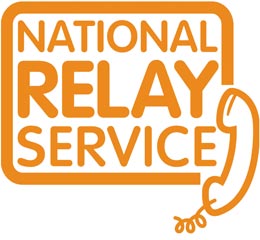
National Relay Service logo
The office of the Government’s Communication Minister, Mitch Fifield, released an official announcement on establishing a sustainable NRS on 23 June 2017, which will come into effect from 1 July. However, the announcement has raised fears about a lack of provision to increase funding, even though new relay options were introduced over the last three years, and usage is steadily rising.
Media Access Australia believes that the Government should immediately consult with NRS stakeholder organisations to ensure that the new contract meets the needs of users while also providing the range of services required by people of all ages.
"Services like the NRS provide critical support for people who are Deaf, hearing or speech impaired, so that they can have access to services that the rest of us take for granted," said Media Access Australia CEO, Dr Manisha Amin.
"It’s vital for people to be able to communicate with the doctor, lawyers, or staff at a bank,” added Dr Amin. “And as technology becomes more complex, the need for people with disability to effectively communicate becomes even more critical.”
The number of NRS calls made and received has been increasing year on year, and the cost of operating the relay service and the outreach service of the NRS in Quarters 1-4 of 2016/17 came to $24,104,986. This is more than $4 million over the 2012 cap that will come into effect on 1 July, and validates the concerns being raised in the wider community about reduced service delivery into the future.
Indeed, the Relay Service website confirms an immediate effect, with some activities previously undertaken by the Outreach service of the NRS not to continue, including face-to-face training and promotion.
The Australian Communications Consumer Action Network (ACCAN) is also alarmed about the new NRS funding cap. “There are real concerns that without appropriate funding, NRS services may be wound back from present levels leaving some consumers without services,” said ACCAN Disability Policy Advisor, Wayne Hawkins in a statement after the Government announcement.
“The introduction of video relay, SMS relay, two-way internet relay, the NRS app and captioned telephony has made Australia’s National Relay Service a worlds-best service for people who are Deaf, hearing-impaired or speech-impaired and it should be applauded."
Additionally, ACCAN has concerns about the Government’s proposal to require NRS users to register to use the service – particularly if the registration process is online. This does not accommodate NRS users who do not have internet access, such as older Australians, who use teletypewriters (TTY) to use the NRS.
“The NRS is more than a safety net, it provides equivalent access to communications services for those who cannot use standard telephone services. It should be available for anyone who needs it without a requirement to be registered,” said Mr Hawkins.
Media Access Australia believes that offering a range of options to people using the NRS allows individuals to make individual choices around which type of NRS service is the easiest and most efficient one for them to use.
“User options change based on age and a whole lot of other factors," said Dr Manisha Amin. “So part of this has to be based around providing options that individual users prefer to make calls and to receive calls through the NRS, and of course funding a range of communication choices appropriately."
"We do fear that having a five year old cap on a service which only recently gained new usage options, will lead to less choice. This is particularly the case for older and more vulnerable people, who rely on the National Relay Service to regularly interact with the world around them."
Top of page

